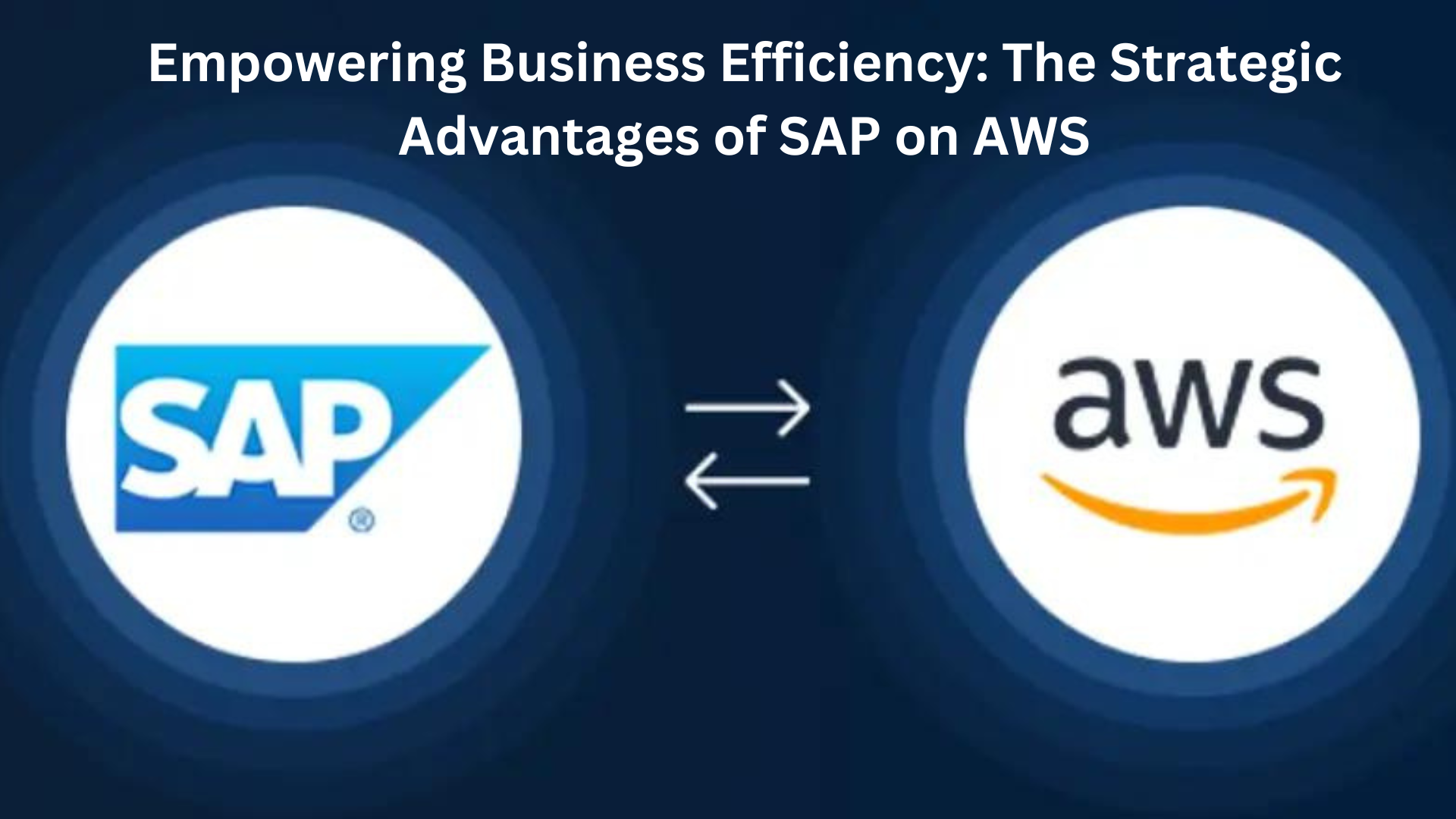Empowering Business Efficiency: The Strategic Advantages of SAP on AWS
In an era where digital agility and operational efficiency are paramount, enterprises are in constant search for technologies that promise not just sustainability but also a competitive edge. At the forefront of this search are SAP's comprehensive enterprise resource planning (ERP) solutions and Amazon Web Services' (AWS) pioneering cloud computing capabilities. The integration of SAP systems on AWS's versatile platform encapsulates a fusion of operational excellence and innovative cloud technology. This blend offers businesses transformative benefits like enhanced scalability, significant cost efficiencies, and robust security measures. Embracing SAP on AWS is more than just a technological upgrade; it's a strategic move towards leveraging the cloud's potential to fuel business growth and resilience.
Why SAP on AWS?
Cloud computing's ascent has been a game-changer for modern business operations, reshaping the traditional paradigms of IT infrastructure deployment and management. The collaboration between SAP and AWS marks a pivotal chapter in this ongoing evolution, establishing a gold standard for deploying enterprise systems in the cloud. AWS's infrastructure presents a scalable, secure, and cost-effective solution perfectly suited to the demands of SAP's extensive application suite. This alliance empowers organizations with the flexibility to dynamically adjust their SAP landscapes to meet fluctuating demands, drive operational efficiencies, and extend their global reach without the prohibitive costs and complexities associated with conventional data centers. Furthermore, AWS's comprehensive suite of managed services liberates businesses from the intricacies of IT administration, allowing them to redirect focus towards strategic initiatives. The SAP-AWS partnership is not merely a technical coalition but a catalyst for businesses to unlock the full spectrum of cloud advantages, encompassing efficiency, scalability, and strategic cost management, all while upholding stringent security and compliance standards.

Benefits of SAP on AWS
Scalability and Flexibility :
One of the most significant advantages of running SAP on AWS is the unmatched scalability and flexibility of the cloud infrastructure. Businesses can easily scale their SAP environments up or down based on real-time demands, ensuring that they only pay for the resources they use. This dynamic scalability not only optimizes costs but also accommodates business growth or seasonal fluctuations without the need for extensive planning or investment in physical infrastructure.
Cost Savings :
Transitioning to AWS for SAP workloads translates into substantial cost savings for businesses. By leveraging AWS's pay-as-you-go pricing model, companies avoid the capital expenditure associated with on-premise data centers. Furthermore, AWS's continuous innovation in cloud computing efficiency helps reduce operational costs over time, making it a financially prudent choice for running complex SAP landscapes.
High Availability and Disaster Recovery :
AWS's global infrastructure offers high availability and robust disaster recovery solutions for SAP applications. With AWS, businesses can deploy their SAP systems across multiple geographically dispersed data centers, ensuring continuous operation even in the event of a data center failure. This high availability setup, combined with AWS's comprehensive backup and recovery tools, provides peace of mind and minimizes business disruption during unforeseen events.
Security and Compliance :
Security is paramount when running SAP applications, and AWS offers an extensive suite of security tools and services designed to protect sensitive data and ensure compliance with global regulatory requirements. AWS's shared responsibility model means that while AWS manages the security of the cloud, customers have the tools and resources to secure their SAP applications, achieving the highest levels of data protection and compliance.
Performance Optimization for SAP HANA :
AWS provides specialized instances optimized for SAP HANA, offering the high memory and compute capacities required for running these intensive workloads efficiently. This ensures that businesses can fully leverage the capabilities of SAP HANA, including real-time analytics and applications, with improved performance and lower latency.
Performance of SAP S/4HANA on Amazon Web Services (AWS) :
Optimizing the performance of SAP S/4HANA on Amazon Web Services (AWS) is crucial for ensuring that your SAP systems are running efficiently, securely, and cost-effectively. This process involves a comprehensive approach that includes selecting the appropriate AWS resources, configuring them optimally, and leveraging AWS-specific services to enhance the performance of your SAP S/4HANA landscape.
Managed Services and Automation :
AWS offers a range of managed services and automation tools that simplify the management of SAP environments. These services reduce the administrative burden on IT teams, automate routine tasks, and ensure best practices in deployment, monitoring, and maintenance. This allows businesses to focus more on innovation and less on operational complexities.
Migration and Hybrid Cloud Strategies :
AWS supports seamless migration and hybrid cloud strategies, enabling businesses to move their existing SAP workloads to the cloud with minimal disruption. AWS's extensive set of migration tools and services, along with its compatibility with hybrid environments, ensures that companies can transition at their own pace while maintaining continuity and integration with on-premise systems.
Case Studies and Success Stories :
Numerous businesses across various industries have experienced transformative benefits by migrating their SAP systems to AWS. These success stories highlight improved operational efficiency, cost savings, enhanced performance, and the ability to innovate at scale. Companies have leveraged AWS to expand into new markets rapidly, streamline their operations, and enhance their competitive edge in the digital economy.